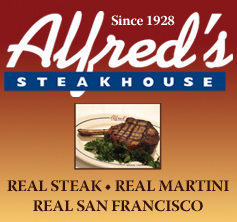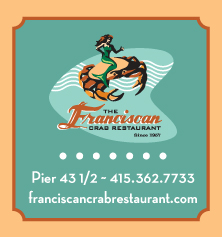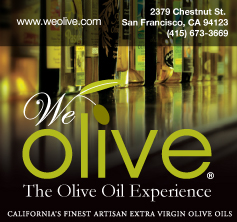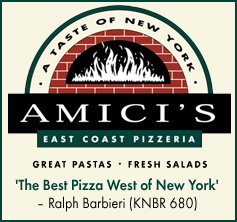What better to go with a hunk of steak than some whiskey? In recent years, America’s frenzied adulation of our pre-Prohibition drinking ways has been gaining steam. Americans are doing some serious spirits soul searching, reviving our roots, and rediscovering our drinking past. Microdistilleries are springing up across the country, creating craft spirits using old-fashioned methods, small copper pot stills, opting out of chill filtering, and creating spirits that uniquely reflect the region they hail from. Dare I say terroir?
Here are five American craft whiskeys from distilleries that are turning heads. Cocktail recipe recommendation: add a rock or two.
High West Distillery Rendezvous Rye, $46
Park City, Utah, www.highwest.com
Nestled in the Rocky Mountains, Utah’s first distillery since 1870, High West, is turning out impeccable spirits at 7,000 feet. Located in old town Park City at the bottom of a ski run, complete with the town chair lift dangling past in the background, the distillery and accompanying saloon-restaurant boasts that they are the world’s only ski-in gastro distillery. Proprietor and distiller David Perkins combines his background in biochemistry and his love of whiskey to craft small-batch spirits. While waiting for his own whiskey to age, Perkins has been causing a stir, creating some stellar blends using unique and carefully sourced barrels. A personal favorite is their Rendezvous Rye, an incredible, one-of-a-kind spirit. Rye itself is amazing, elegant and until recently, highly under-appreciated. It is the country’s oldest spirit – even George Washington distilled it – and until Prohibition, Americans drank more rye than any other spirit. Post-Prohibition, the focus changed to rye’s sweeter sibling, bourbon, which was less expensive to produce. A blend of a 6-year and a 16-year straight rye whiskey, this one does not mess around. Made the way rye used to be made with a high rye content of 95 percent in the 6-year mash bill and 80 percent in the 16-year, it has a beautiful, spicy bouquet. With the young and old blend, you get the best of both worlds: vibrancy and depth; spicy young fruits; and mature, mellow caramel undertones with flavors of cinnamon, mint and vanilla. It has an outstanding finish and is overall a truly delicious and unique rye.

Death’s Door Spirits, White Whiskey, $36
Washington Island, Wisc., www.deathsdoorspirits.com
Some whiskey enthusiasts cringe at the idea of allowing this spirit to assume the title of whiskey at all, but call it what you will – white dog, new make, moonshine, white whiskey, or the like – the raw, un-aged spirit’s rising popularity is impossible to ignore. On a little island seven miles off the northern-most tip of Wisconsin’s Door Peninsula, Death’s Door Spirits makes a well-loved malted wheat “white whiskey.” Owner Brian Ellison named the company after the shipwreck-laden waterway between the island and the peninsula that connects the Green Bay to greater Lake Michigan. Committed to working with local farmers and expanding agricultural sustainability, Death’s Door grows all the wheat in their spirits on the beautiful 23-square-mile island. Eighty percent of this white whiskey’s mash bill is their organic Washington Island hard red winter wheat, and the other 20 percent is organic malted barley from Chilton, Wisc. The spirit is double distilled in a 90-gallon copper still under Death Door’s direction at nearby microdistillery Yahara Bay, rested in stainless steel, and finished in uncharred Minnesota oak barrels. The clear color and sharp aroma are reminiscent of cachaça. The spirit is fiery, young and guaranteed to put some hair on your chest.
Finger Lakes Distilling McKenzie Bourbon Whiskey, $53
Burdett, N.Y.; www.fingerlakesdistilling.com
Finger Lakes Distilling sits in the heart of New York’s idyllic, bountiful wine country on a softly sloping hillside overlooking Seneca Lake. A farm as well as a distillery, co-owners Brian McKenzie and Thomas Earl McKenzie (no relation) are all about the farm-to-bottle approach. Generally, all of the ingredients going into their spirits are organic and locally sourced from within a 50-mile radius, including some of which they grow themselves. Green practices are combined with passion-inspired, small-batch craftsmanship to create quality spirits. Their McKenzie Bourbon Whiskey is made from a local variety of open-pollinating heirloom corn, distilled in their 200-gallon copper pot still, aged in new charred barrels and finished in local Chardonnay casks. The bourbon is delicate yet complex with aromas of apricot, spice and vanilla, and the lack of chill filtering gives it a satisfying full mouth feel. They also make a stand-up rye.
Clear Creek Distillery McCarthy’s Oregon Single Malt Whiskey, $51
Portland, Ore.; www.clearcreekdistillery.com
America doesn’t have much in the way of creed when it comes to turning out exemplarily single malts, yet one little Oregon distillery has made waves in the scotch world, accumulating top accolades from critics. Steve McCarthy, who saw more potential in his family’s ample Parkdale, Ore. orchards than straight consumption, started Clear Creek Distillery in downtown Portland 26 years ago. For the last 14 of those years, he’s been making this Islay-style whiskey. The peat-malted barley is imported from Scotland and nearby microbrewery Widmer ferments it into a mash, McCarthy distills it, then ages it in old sherry casks and air-dried Oregon oak barrels for three years. Incredibly smooth for its age and heavy on the peat, time-tested experience shines through in this sophisticated single malt. McCarthy has paved the path for a slew of new distilleries that have sprouted up throughout Portland, the do-it-yourself city and natural forefront of this movement. A newcomer of particular note is House Spirits, which is turning out good whiskeys and a white dog that will change the way you think about white dog.
Balcones Baby Blue Corn Whisky, $34
Waco, Tex.; www.balconesdistilling.com
In fall of 2009, under the 17th Street Bridge in a former welding supply shop in Waco, Balcones Distillery premiered the first whiskey made in Texas since Prohibition. Founder and distiller Chip Tate, his production manager, Jared Himstedt, and their crew have taken craft distilling to a whole new level, having designed and painstaking crafted all the equipment used in the distillery to make their small-batch Texas spirits. Their Baby Blue Corn Whisky is made from 100 percent Hopi blue corn, distilled twice and aged in new charred oak barrels, specially made smaller than average to speed up the aging process. It is the only known whiskey made from blue corn, chosen by Tate after sampling many a kernel for its outstanding character and robust flavor. Their corn is grown by a Hopi tribe in Arizona, obtained through a Native American co-op and roasted in New Mexico. The whiskey is a true corn whiskey, sweet but fiery and not fully acquainted with the barrel. It is young, vibrant and forward, heavily perfumed with floral and young fruit notes, and most of all, true to its buttery, slightly nutty corn flavor.
E-mail: iris@northsidesf.com










